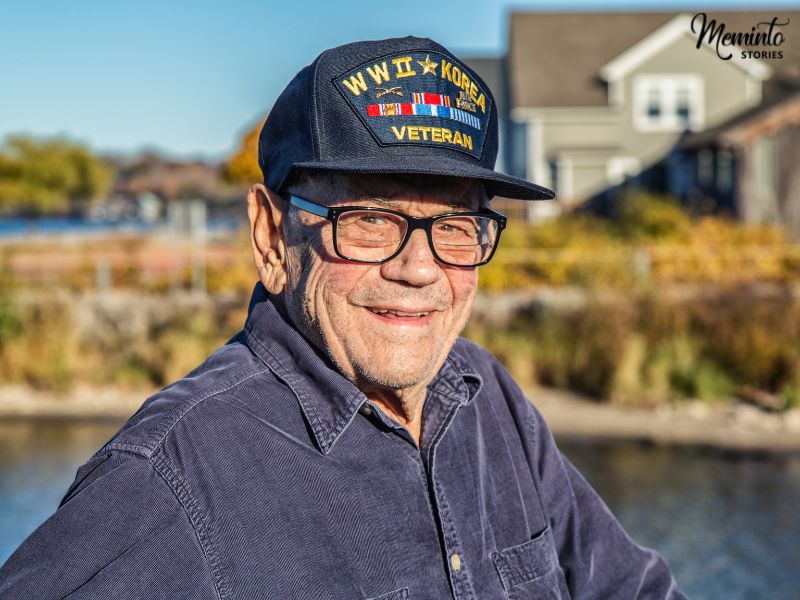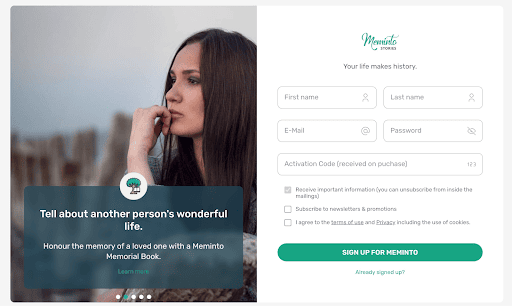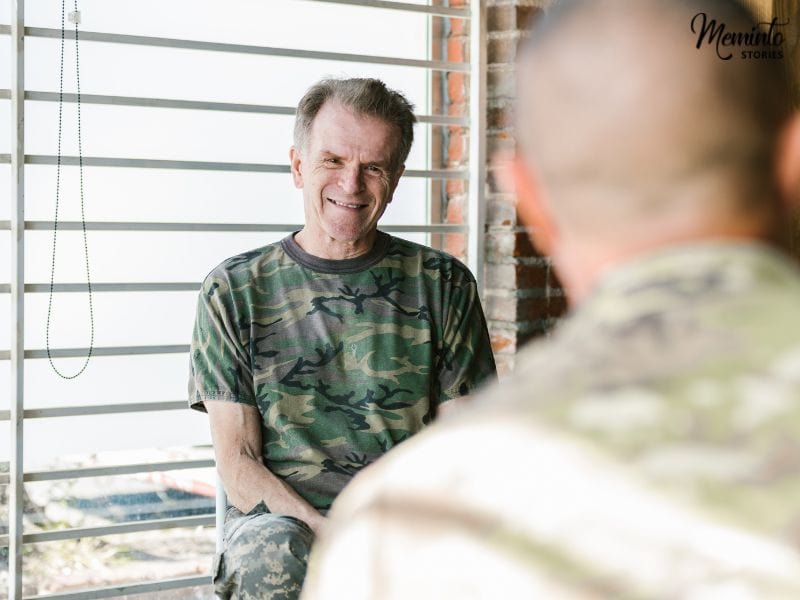Every U.S. military veteran has a story worth hearing. Behind their service lies a journey filled with bravery, sacrifice, and resilience. Yet, for many of us, their experiences remain a mystery, tucked away in memories they seldom share.
Taking the time to ask thoughtful questions can unlock these stories, allowing us to connect with veterans on a deeper level and better appreciate the sacrifices they’ve made.

Whether you’re speaking to a family member, a friend, or a veteran in your community, meaningful conversations can provide insight into their lives while showing them the respect and gratitude they deserve. This article offers over 100 interview questions designed to encourage those conversations, ensuring their stories are preserved and honored for generations to come.
Let’s begin!


Key Takeaways
- Engaging with veterans through thoughtful questions fosters deeper understanding, respect, and gratitude for their service and sacrifices.
- Listening to their stories can inspire strength, educate others about history, and create lasting emotional connections.
- Documenting veterans’ experiences ensures their legacies are preserved for future generations, helping to keep their voices alive.
- Meminto makes it easy to compile and preserve these stories in a beautifully designed format, allowing veterans to share their memories in a meaningful way.
- The process of capturing these stories not only honors their contributions but also creates a treasured heirloom for families to cherish.
Why It’s Important to Ask Veterans About Their Stories
Veterans carry unique experiences that offer a glimpse into history, resilience, and service to their country. By asking them about their stories, we’re not only preserving personal accounts of military life but also gaining invaluable lessons on courage, teamwork, and adaptability. These conversations can bridge the gap between civilians and the military, fostering understanding and appreciation.
For many veterans, sharing their experiences can also be a form of healing. Talking about their time in service may help them reflect on their journey and feel valued for their contributions. As listeners, we gain the opportunity to learn firsthand about the sacrifices and triumphs that shaped their lives.
It’s a way to honor their service while deepening our connection to the individuals who have given so much for their country.
How to Approach Veterans Respectfully
When asking veterans about their experiences, it’s essential to approach the conversation with empathy and understanding. Here are some tips to ensure your questions are received respectfully:
- Start with Gratitude: Begin by thanking them for their service. This sets a positive tone and shows that you value their sacrifices.
- Choose the Right Time and Place: Find a quiet, comfortable setting where they feel safe to share. Avoid situations that might feel rushed or intrusive.
- Ask Open-Ended Questions: Frame questions in a way that allows them to elaborate if they want, rather than giving yes-or-no answers.
- Be Mindful of Boundaries: Some experiences may be too personal or painful to share. Respect their decision if they prefer not to answer.
- Listen Without Interrupting: Give them your full attention, allowing them to share at their own pace without interruptions or judgments.
- Avoid Stereotypes or Assumptions: Every veteran’s experience is unique. Avoid generalizations about what they might have gone through.
- Express Genuine Curiosity: Show that you’re interested in their stories because you want to learn, not because you feel obligated.
- Be Patient: If they’re hesitant to open up right away, give them time. Building trust may take a few conversations.
Approaching veterans with respect creates a safe space for them to share their stories, making the experience meaningful for both of you.
100+ Interview Questions to Ask U.S. Military Veterans
To help guide meaningful conversations with veterans, these questions are organized into categories. Choose ones that resonate most, keeping in mind the veteran’s comfort level and experiences.
Early Life and Joining the Military
- What inspired you to join the military?
- Did you have any family members who served before you?
- How did your family and friends react when you decided to enlist?
- What branch of the military did you serve in, and why did you choose it?
- What was the enlistment process like for you?
- How old were you when you joined the military?
- Did you always know you wanted to serve in the military?
- What were your expectations before joining?
- How did your upbringing shape your decision to enlist?
- What values or skills did you bring into your service?
Training and Early Experiences
- What was your first day of basic training like?
- Can you describe the toughest part of your training?
- Did you form close friendships during training?
- What was the most surprising thing about military life?
- How did you prepare yourself mentally and physically for service?
- What was your first assignment after basic training?
- Did you receive any specialized training?
- How did you stay motivated during tough times in training?
- Were there any funny or unexpected moments during your training?
- How did your perception of the military change after joining?
Deployments and Service Experiences
- Where were you stationed during your service?
- Can you describe a typical day during your deployment?
- What was your most memorable mission or operation?
- Did you get to travel to places you never expected to see?
- How did you adapt to living in a new country or environment?
- What were some challenges you faced while deployed?
- How did you stay connected with loved ones back home?
- Did you work with international forces or allies?
- What was your role or specialty during your deployment?
- Are there any traditions or rituals from your deployments that stand out?
Challenges and Triumphs
- What was the most challenging part of being in the military?
- How did you cope with being away from family and friends?
- Were there moments when you felt especially proud of your service?
- Did you ever have to make a difficult decision in the line of duty?
- What were some lessons you learned during tough times?
- How did you support or help your fellow service members?
- Were there moments that tested your mental or physical strength?
- How did you celebrate personal or team achievements?
- Were there any mentors or leaders who inspired you?
- What accomplishments are you most proud of from your military career?
Life After the Military
- How did you transition to civilian life after leaving the military?
- What was the most significant adjustment you had to make?
- Did your military experiences influence your career choices?
- Are there any skills from the military that you still use today?
- How do you stay connected with other veterans?
- What advice would you give to veterans transitioning to civilian life?
- Did you continue your education after leaving the military?
- How did your time in the military shape your values or perspective?
- Do you stay involved in any military or veteran organizations?
- What do you miss most about being in the service?
Reflection and Advice
- What do you wish people understood about serving in the military?
- What advice would you give to someone considering joining the military?
- Are there any misconceptions about military life that you’d like to address?
- How did your service shape your view of patriotism?
- If you could go back, would you make the same decision to enlist?
- What has been your biggest takeaway from your military service?
- How do you feel your service has contributed to your community or country?
- What moments from your service do you find yourself reflecting on most often?
- Is there anything you’d like future generations to learn from your experiences?
- How has your military service influenced your personal growth?
Lighthearted and Personal Questions
- Did you have any funny nicknames in the military?
- What was the food like during your service?
- Were there any inside jokes among your unit?
- What did you do for fun or relaxation during downtime?
- Did you ever participate in military traditions or pranks?
- What’s the funniest memory you have from your time in service?
- How did you celebrate holidays while in the military?
- Were there any songs, movies, or books that helped you through tough times?
- What’s one thing most people don’t know about military life?
- If you could relive one moment from your service, what would it be?
Custom Questions to Dive Deeper (Continued)
- Did you serve in any major conflicts, and how did they shape your perspective?
- Were there moments in service when you felt particularly supported by your comrades?
- How did you celebrate personal milestones like birthdays or promotions?
- Did you have a specific mentor or role model in the military?
- What was the best piece of advice you received during your service?
- Were there any traditions unique to your branch or unit?
- Can you share an example of teamwork that made a difference during your service?
- How did you deal with moments of fear or uncertainty?
- What’s a skill you learned in the military that you never expected to use?
- Are there any humorous or lighthearted memories that stand out?
Military Life Insights
- What does camaraderie mean to you after serving in the military?
- How did you prepare for returning home after a long deployment?
- Were there any moments when you felt misunderstood as a service member?
- How did your relationships evolve while you were in the military?
- Did you receive any awards or recognitions during your service?
- What was a day in the life like for your specific role or rank?
- Were there cultural or language barriers you had to overcome while serving?
- How did the military change your outlook on discipline and responsibility?
- Did you have any experiences with humanitarian missions or peacekeeping efforts?
- How do you think military service impacts family members?
Advice and Lessons Learned
- What advice would you give to someone supporting a loved one in the military?
- What’s one thing you wish civilians understood about service members?
- How has the military shaped your approach to challenges in civilian life?
- Are there any life lessons from your time in service that you hold onto?
- What’s the biggest way the military shaped who you are today?
- How do you think your service has influenced those around you?
- Do you feel your service prepared you for life after the military?
- What do you hope future generations learn about military service?
- Are there any lessons or habits from the military that you’ve passed on to others?
- How do you want to be remembered as a veteran?
Family, Relationships, and Personal Impact
- How did your military service impact your family life?
- Did your family play a role in your decision to enlist?
- How did you stay connected with your family while you were deployed?
- Were there any traditions or rituals you and your family followed during your service?
- How did your loved ones cope with your time away?
- What advice would you give to military families supporting their service members?
- How did your service shape your relationship with your parents or siblings?
- Did your family have any concerns about your safety while you served?
- How did your family celebrate your homecomings?
- What role did your family play in your transition to civilian life?
Dealing with Trauma and Mental Health
- Were there moments during your service that were particularly difficult to process?
- How did you cope with stress or anxiety while serving?
- Did you have access to mental health resources during or after your service?
- What advice would you give to other veterans dealing with similar struggles?
- How do you process memories of particularly challenging experiences?
- Have you found ways to address or heal from any trauma you experienced?
- Are there specific events that still affect you today?
- How do you practice self-care after your time in the military?
- What helped you most in recovering from difficult moments?
- Are there ways your military service affected your outlook on mental health?
Injuries and Physical Challenges
- Did you experience any injuries during your service?
- How did you adjust to life after an injury?
- Were there any long-term physical challenges from your military career?
- How did you stay resilient while recovering?
- What kind of support did you receive during your recovery?
- Are there activities or routines that help you manage physical challenges?
- How did your injury or physical challenges impact your daily life?
- Did you find support groups or communities that helped you?
- What advice would you offer to veterans dealing with similar situations?
- How has your injury shaped your perspective on perseverance?
These questions dig into the impact of military service on family, relationships, mental health, and physical well-being, offering a well-rounded perspective of a veteran’s journey.
The Emotional Impact of These Conversations
Engaging with veterans on a deeper level can leave a lasting emotional impact, not just on the listener but on the veterans themselves. These conversations provide a unique opportunity to connect with their personal journeys, fostering mutual respect and understanding.
Listening to veterans share their stories can:
- Inspire Resilience and Strength: Their accounts of bravery and perseverance often serve as powerful reminders of human resilience, encouraging others to face their own challenges with courage.
- Educate Future Generations: Veterans’ experiences offer valuable historical insights and teach important lessons about the realities of war, service, and sacrifice.
- Foster Gratitude: Hearing firsthand about the sacrifices made for freedom deepens appreciation for their service and the liberties we often take for granted.
- Create a Sense of Purpose for Veterans: Sharing their stories allows veterans to feel acknowledged and valued, reinforcing the importance of their contributions.
- Strengthen Interpersonal Bonds: These heartfelt conversations often create meaningful connections between veterans and their families, friends, or community members.
By inquiring into their narratives, you honor their service while also gaining valuable perspectives that can inspire and shape your own life.
Creating a Record of Their Stories
Preserving the stories of veterans is a meaningful way to ensure their legacy endures for future generations. Documenting their accounts not only honors their experiences but also provides a tangible resource for education, reflection, and remembrance.
Here are some practical ways to record their stories:
- Journaling: Write down their answers in a dedicated journal. This method allows for detailed documentation while capturing the personal essence of their journey.
- Audio or Video Recordings: Use a smartphone or recorder to capture their voice and expressions. These formats bring their stories to life and preserve their emotions.
- Scrapbooks: Combine written stories with photos, medals, and other memorabilia to create a rich, visual narrative of their military journey.
- Digital Storytelling Tools: Platforms like Meminto make it easy to compile their stories into a professionally designed book. Meminto guides you through prompts, helping veterans recall their memories while creating a keepsake for their family.
Preserving these stories is more than just a documentation effort. It’s a way to celebrate the life and contributions of veterans, ensuring their sacrifices and experiences are never forgotten.
Preserve Veterans’ Stories with Meminto
Meminto offers an innovative way to document and preserve veterans’ stories in a beautifully crafted format. By using guided prompts, Meminto helps veterans recall meaningful moments from their service, personal life, and beyond. These memories are then compiled into a professionally designed book, creating a timeless keepsake for families and future generations.
Why choose Meminto?
- Ease of Use: The platform provides step-by-step guidance, making it simple for veterans to share their experiences, even if they’ve never written them down before.
- Customization: Tailor the content to highlight the most important milestones, from service memories to personal reflections.
- Legacy Preservation: A Meminto book becomes a cherished heirloom, ensuring their sacrifices and lessons are passed down.
Using Meminto, you can preserve the rich history and emotional depth of a veteran’s life in a format that will last for decades. It’s a meaningful way to celebrate their legacy and ensure their voice continues to inspire.
How to Preserve a US Military Veteran’s Story With Meminto
- Go to https://meminto.com/product/life-book/ and click on the “Start Now.”
- Pick who writes the memory book by choosing either “I Will” or “Someone Else Will.”
- Select the number of pages and input any other options you prefer. The system will generate your total, then click “Add to Cart.”
- Input your Shipping Details and select payment method preference. If you have a promo code, apply it to get a discount.
- Review and Confirm your order, then track your delivery status from the checkout page.
- Check Your Email for the confirmation and activation code, then go to memin.to/register.
- Enter your personal information, activation code, and password. Click “Sign up for Meminto” to start writing your story.

- Once registered, choose your language preference (English or German) and set the day you’d like to receive memory prompts.
- Personalize your memory book design by selecting layouts and other design preferences.
- Customize the book to fit your needs.

11. Watch the instructional video below so you can get better guidance on how you can use the Meminto app.
Wrapping Up!
Engaging with veterans through meaningful questions allows us to honor their service, gain insights into their experiences, and preserve their legacy. These conversations not only deepen our understanding of military life but also inspire resilience, gratitude, and empathy in our own lives.
Documenting their stories is equally important, and with Meminto, preserving their memories ensures their sacrifices and life lessons endure for future generations.
Veterans’ experiences hold invaluable lessons about courage, sacrifice, and humanity. Let’s make sure their voices are heard and their legacies are cherished for years to come.



















